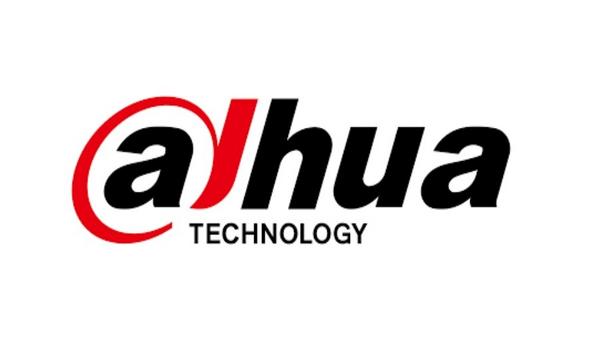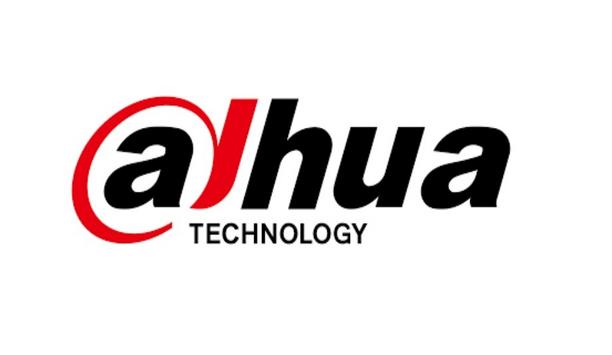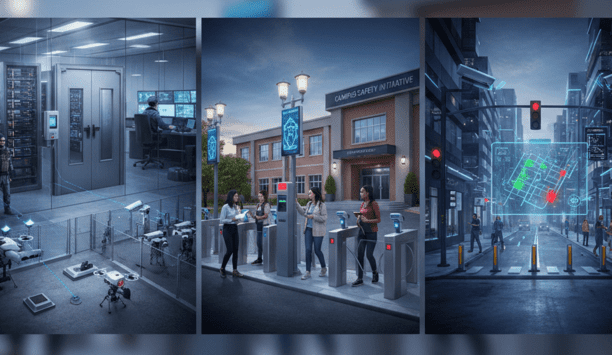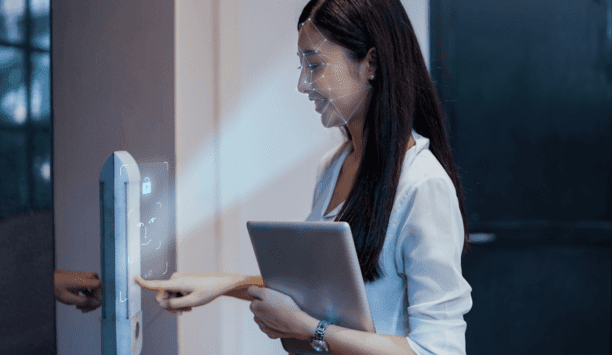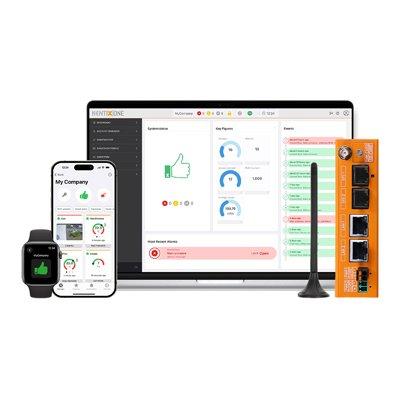In the 1977 book, The Age of Uncertainty, author John Kenneth Galbraith wrote, “All of the great leaders have had one characteristic in common: it was the willingness to confront unequivocally the major anxiety of their people in their time. This, and not much else, is the essence of leadership.”
Fast-forward four decades, and we are facing uncertainty like no other - anxiety levels are high, and fake news has become part of our daily lexicon. With this in mind, what can security and technology leaders do to alleviate fears, safeguard and reassure the public?
The COVID-19 pandemic is the single biggest accelerator of digital transformation I have ever seen. We have had to survive in a world where digital was our only option. Digital solutions have connected us to each other, enabled us to work, and kept our streets and families safeDigital solutions have connected us to each other, enabled us to work, kept our streets and families safe, and even helped scientists to develop a COVID-19 vaccine in an unprecedented timeframe. Now, as we look towards the new next, we are entering a fresh era for disruptive thinking and innovative business models.
Yet, our first and foremost thought among this must focus on responsible technology.
Trust at an all-time low
Make no mistake, the public are deeply disenchanted and trust is at an all-time low. In 2020, the Edelman Trust Barometer recorded a significant drop in the public’s trust in the tech sector. Three in five British people believe that technological change is happening too fast. CEO Richard Edelman notes that “Trust in tech has declined substantially. A lot of this has to do with suspicion not just about size, but about data and privacy.”
The responsible use of technology
The responsible use of technology will rebuild trust in technology at a time when our lives are intrinsically linked with itThe responsible use of technology (RUOT) will rebuild trust in technology at a time when our lives are intrinsically linked with it. Prioritising the RUOT gives organisations an opportunity to earn the trust of customers and employees. It goes beyond compliance or public relations.
It also directly impacts the bottom-line. Employees at high-trust companies report that they have more energy at work, are 50% more productive, and are more engaged. Trust is the second most important purchasing factor for brands.
The Copenhagen Letter
As leaders, we have a responsibility towards our customers and the public to ensure all software and technology is used in an ethical and responsible way. To that end, Milestone has taken an active role in creating the Copenhagen Letter, a technology declaration developed by 150 people from all industries and signed by over 5,000 individuals.Milestone has taken an active role in creating the Copenhagen Letter, a technology declaration developed by 150 people from all industries and signed by over 5,000 individuals The core message in the Copenhagen Letter is to make sure that all technology is used in a balanced matter. Based on this, Milestone has also included a “Copenhagen Clause” in its end-user licensing agreements.
The Copenhagen Letter provides a guide to direct how Milestone develops its products, who it sells to and partners with, and what its technology, ultimately, is used for.
Having such frameworks in place is increasingly vital, as digital has become so ubiquitous in our lives, and the coming years, Milestone will further advocate, orchestrate and introduce mechanisms to ensure that our technology and software is being used responsibly.
We’ve become used to using video conferencing to hold meetings, ANPR (automatic number plate recognition) to track vehicle usage in our cities and spot breaches of Coronavirus measures, and occupancy counters to aid social distancing. The growth of video surveillance and analytics, in particular, is highlighting concerns around the use, privacy, and security of video data.
A boardroom priority
As those concerns increase, expect to see RUOT and digital ethics become more of a boardroom priority. We’ll even see it in future KPIs across all departments. Technology creates value in every business domain — part of that value comes from the ethical use of technology. Until today, most conversations around digital ethics and RUOT has focused on compliance and risk. But innovation governance will become a license to operate, it won’t be just another risk metric. Innovating with transparency and trust will become a competitive differentiator.
The first steps towards responsible use of technology
With this in mind, what can technology leaders do now to ensure the RUOT? Committing to a wider movement like the Copenhagen Letter is a good first step. But we need to do more.Educating employees on industry-leading practices and commitments, will help to create a culture of RUOT Leaders must look for opportunities to turn awareness around the need for responsible technology, into action across all business domains. They can spearhead the cultural change needed for digital ethics to be seen as a source of business value. They can become influencers in their field, to lead the way for end-users and partners.
Ethics must become core to all business strategies. E.g. instituting an ethics board will help to guide technology use and evaluate proposed innovations and new use cases. As well as RUOT being a board-level responsibility, it is also integral to every employee’s role. Educating employees on industry-leading practices and commitments, will help to create a culture of RUOT throughout an organisation.
Collaboration needed
Greater collaboration is also needed across the wider industry, with Government, and society as a whole. Unless all citizens are equipped with the means to reflect and feedback on the use of digital (and their data), the power will swing too close towards an autocracy. The uses of technology will be dictated by a few multi-nationals, who stand to reap the most benefits as a result. Global imbalances will widen further.
Technology that’s equal
My message to all leaders today is this: as you look toward the next decade and your digital transformation gathers pace, make sure every decision has the RUOT front of mind. And don’t go through it alone. Businesses, Government, and others, must work together for technology to be used ethically and equally across society, to benefit everyone.
Learn why leading casinos are upgrading to smarter, faster, and more compliant systems




